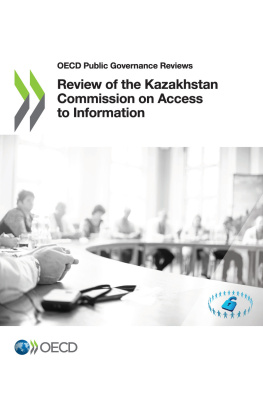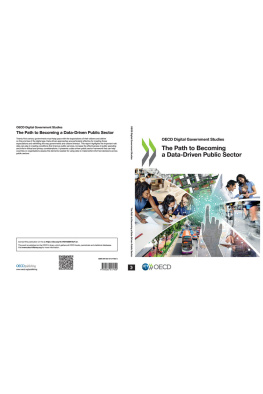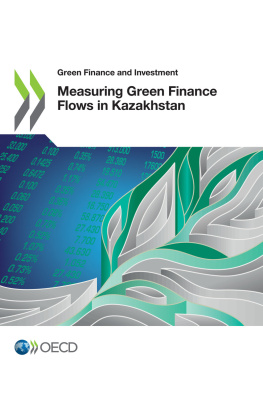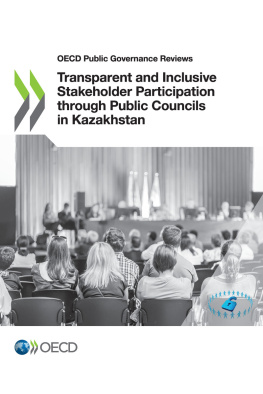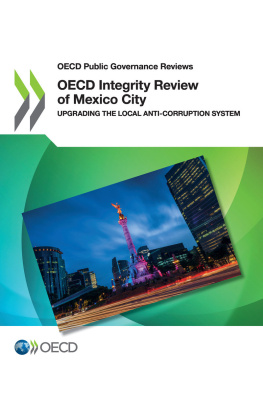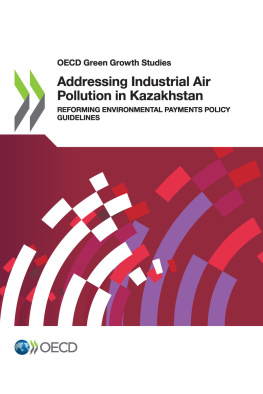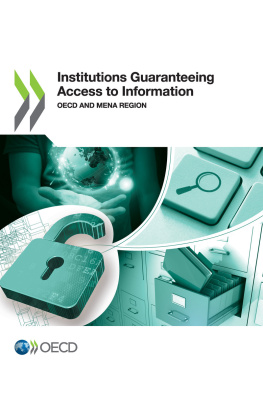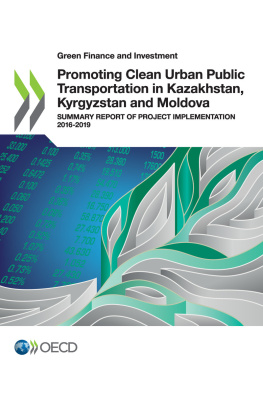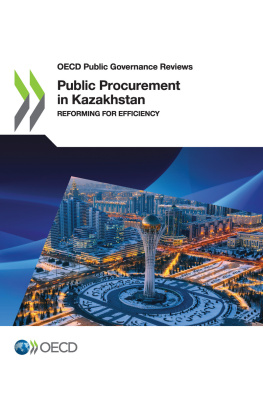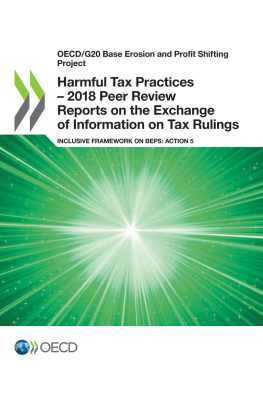OECD - Review of the Kazakhstan Commission on Access to Information
Here you can read online OECD - Review of the Kazakhstan Commission on Access to Information full text of the book (entire story) in english for free. Download pdf and epub, get meaning, cover and reviews about this ebook. year: 2020, publisher: OECD Publishing, genre: Romance novel. Description of the work, (preface) as well as reviews are available. Best literature library LitArk.com created for fans of good reading and offers a wide selection of genres:
Romance novel
Science fiction
Adventure
Detective
Science
History
Home and family
Prose
Art
Politics
Computer
Non-fiction
Religion
Business
Children
Humor
Choose a favorite category and find really read worthwhile books. Enjoy immersion in the world of imagination, feel the emotions of the characters or learn something new for yourself, make an fascinating discovery.
- Book:Review of the Kazakhstan Commission on Access to Information
- Author:
- Publisher:OECD Publishing
- Genre:
- Year:2020
- Rating:4 / 5
- Favourites:Add to favourites
- Your mark:
- 80
- 1
- 2
- 3
- 4
- 5
Review of the Kazakhstan Commission on Access to Information: summary, description and annotation
We offer to read an annotation, description, summary or preface (depends on what the author of the book "Review of the Kazakhstan Commission on Access to Information" wrote himself). If you haven't found the necessary information about the book — write in the comments, we will try to find it.
OECD: author's other books
Who wrote Review of the Kazakhstan Commission on Access to Information? Find out the surname, the name of the author of the book and a list of all author's works by series.
Review of the Kazakhstan Commission on Access to Information — read online for free the complete book (whole text) full work
Below is the text of the book, divided by pages. System saving the place of the last page read, allows you to conveniently read the book "Review of the Kazakhstan Commission on Access to Information" online for free, without having to search again every time where you left off. Put a bookmark, and you can go to the page where you finished reading at any time.
Font size:
Interval:
Bookmark:
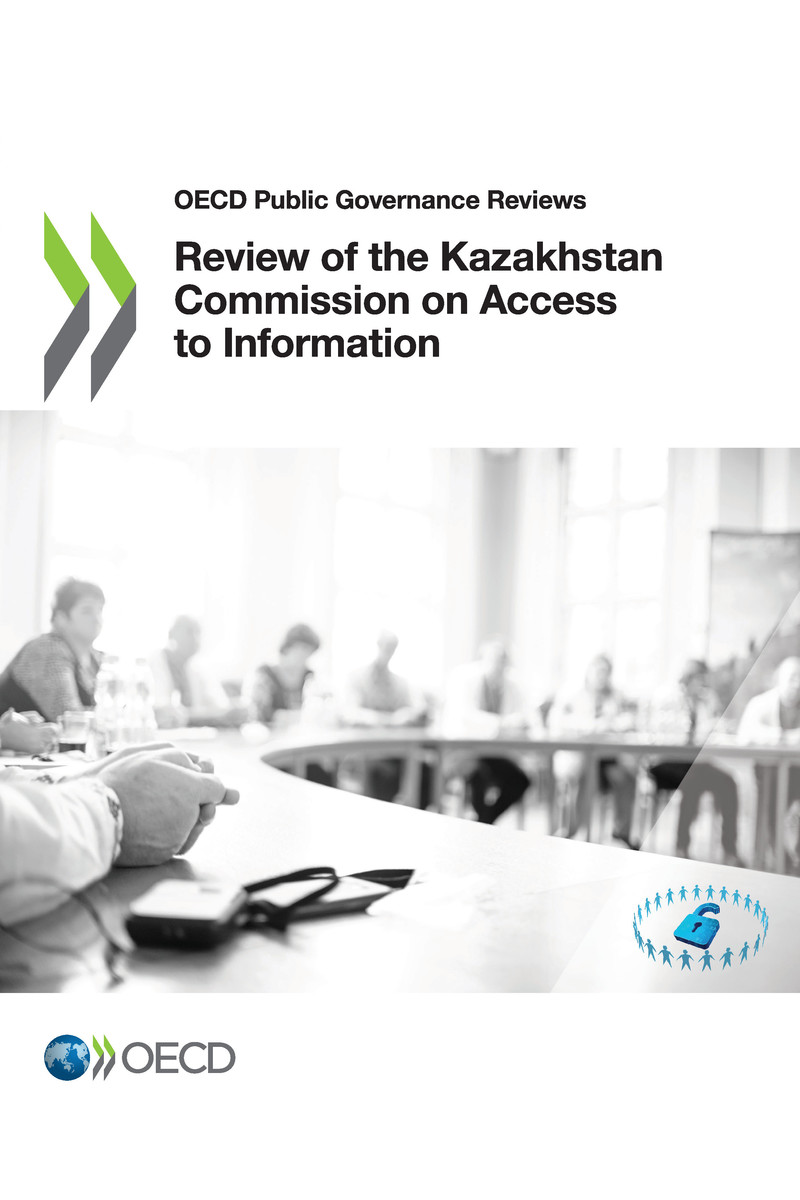
OECD (2020), Review of the Kazakhstan Commission on Access to Information , OECD Public Governance Reviews, OECD Publishing, Paris, https://doi.org/10.1787/3a8d6a0e-en .
Open government promotes the principles of transparency, integrity, accountability and stakeholder participation in support of democracy and inclusive growth. Countries around the world increasingly acknowledge that open government can improve government efficiency and effectiveness, while bringing the administration and its officials closer to citizens.
Kazakhstan has been working to make its government more open, and to better engage citizens and civil society in the policy-making process. To this end, it established a Commission on Access to Information.
In 2017, the OECD conducted an Open Government Review of Kazakhstan as part of its Kazakhstan Country Programme. The review recommended mainstreaming the principles of transparency, accountability, integrity, and stakeholder participation in the countrys ongoing public sector reform process. In order to support the implementation of those recommendations, the OECD was asked to evaluate Kazakhstans new Commission on Access to Information against OECD principles and best practices.
Drawing on OECDs extensive experience, this report assesses the law on access to information of the Republic of Kazakhstan in line with OECD standards and benchmarks the functions of the Kazakhstan Commission on Access to Information against those of similar access to information oversight bodies in relevant OECD countries. The analysis included a comparison of the legal nature, institutional structure and functioning of these institutions, with a focus on the presence and effectiveness of appeal mechanisms.
The findings presented in this report show that, unlike access to information oversight bodies in OECD member countries, Kazakhstans Commission lacks institutional and financial autonomy and is not legally empowered to effectively oversee the implementation of the law, especially with respect to decisions denying citizens access to information requests.
To address these differences and bring the Kazakhstan Commission closer to those of OECD countries, the Review proposes broadening the Commissions mandate and reconsidering its institutional position under the Ministry of Information and Communications. It also suggests strengthening the Commission by including more representatives from civil society and academia, establishing a code of conduct and requiring higher academic qualifications of its members.
This report was prepared by the OECD Public Governance Directorate (GOV) under the leadership of Marcos Bonturi, Director. It was written by Richard Martinez in collaboration with Hille Hinsberg, Policy Analyst of the OECD Open Government Unit, as part of the Kazakhstan Country programme. It was drafted under the supervision of Alessandro Bellantoni, Head of the Open Government Unit and Martin Forst, Head of the Governance Reviews and Partnerships Division of GOV. Amelia Godber provided editorial support.
The OECD wishes to acknowledge the significant contribution made by their interlocutors in the Republic of Kazakhstan. In particular, the Deputy Head of Policy Department Mr. Bekzat Rakhimov and Chief Policy Expert on Access to Information, Ms. Elmira Nurkisheva, of the Ministry for Information and Communications.
Kazakhstan is taking continuous steps towards greater openness, striving to ensure the transparency of government-held data and proactively publishing information and official documents, including through digital channels. However, like many other countries around the world, Kazakhstan faces complex challenges on the path towards open government, which the OECD defines as a culture of governance based on innovative and sustainable public policies and practices inspired by the principles of transparency, accountability, and participation that fosters democracy and inclusive growth.
The government of the Republic of Kazakhstan has expressed a strong commitment to enhancing the transparency, accountability and participation in the policy-making process to reinforce public trust and improve the quality of public services. As part of the Kazakhstan 2050 Strategy, the government is undertaking five institutional reforms to help the country strengthen the capacity of the state and fulfil its objective to become one of the 30 most developed countries in the world by 2050. One of these five institutional reforms focuses on Transparency and Accountability of the State and exemplifies the administrations commitment to open government reforms.
Kazakhstan has passed an access to information law, which is commonly recognised as a fundamental pillar of a transparent and accountable public administration. However, additional steps are required to ensure its proper implementation and oversight. For example, OECD practice suggests that, to promote the effective implementation of the law, the Access to Information Commission should have legal responsibility and operative, budgetary and decision-making autonomy, and that it should report to the legislature.
Font size:
Interval:
Bookmark:
Similar books «Review of the Kazakhstan Commission on Access to Information»
Look at similar books to Review of the Kazakhstan Commission on Access to Information. We have selected literature similar in name and meaning in the hope of providing readers with more options to find new, interesting, not yet read works.
Discussion, reviews of the book Review of the Kazakhstan Commission on Access to Information and just readers' own opinions. Leave your comments, write what you think about the work, its meaning or the main characters. Specify what exactly you liked and what you didn't like, and why you think so.

